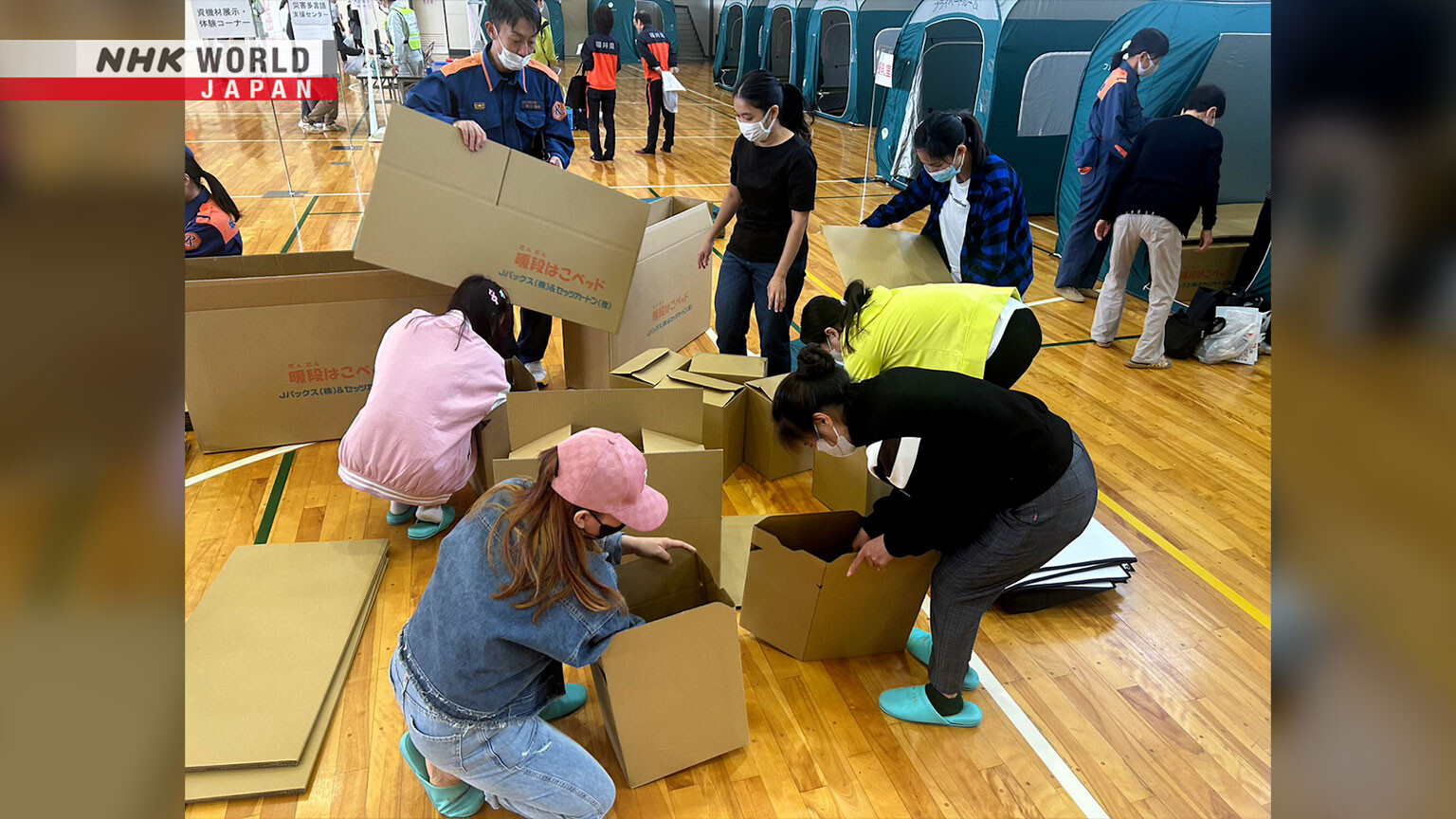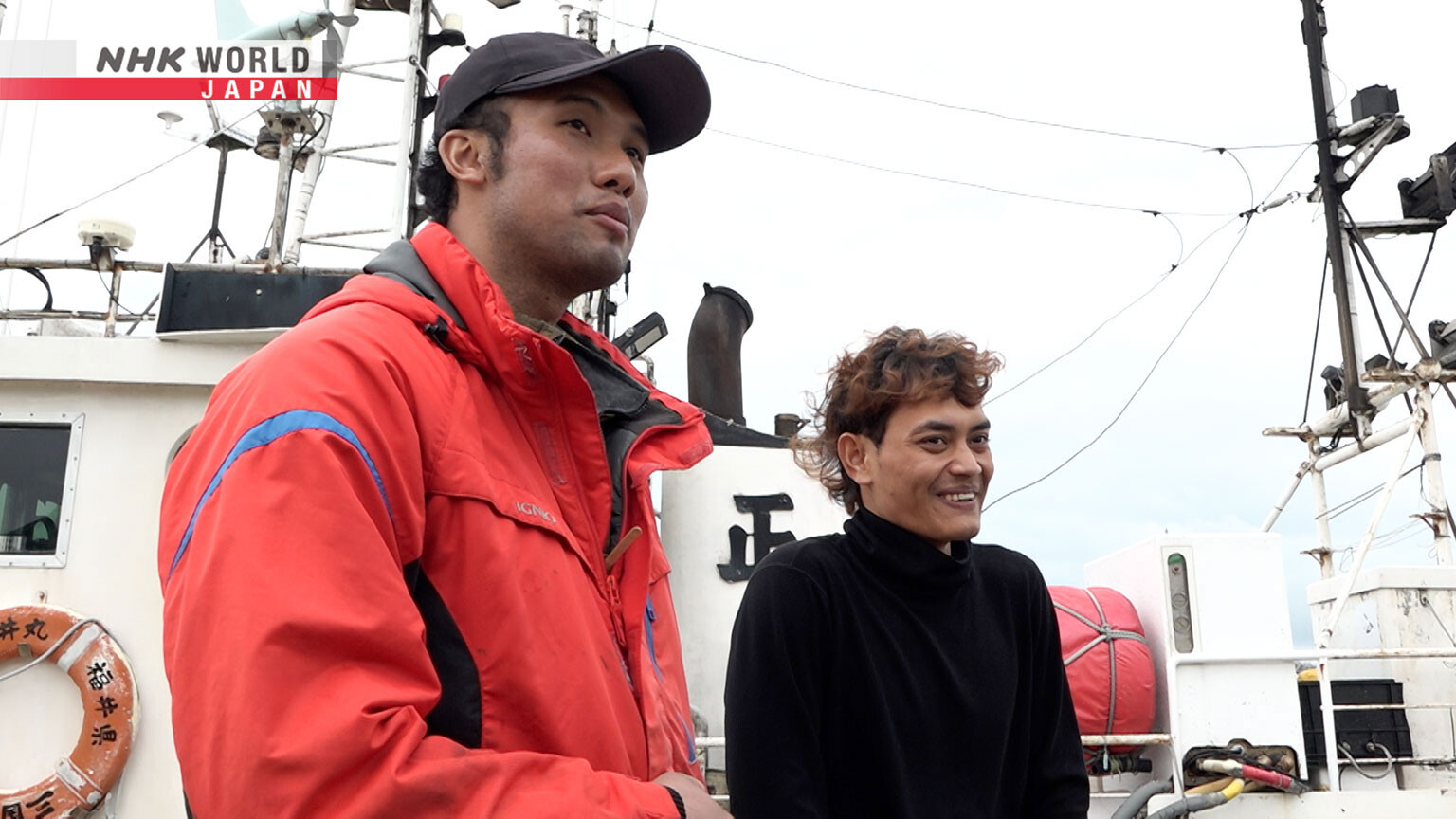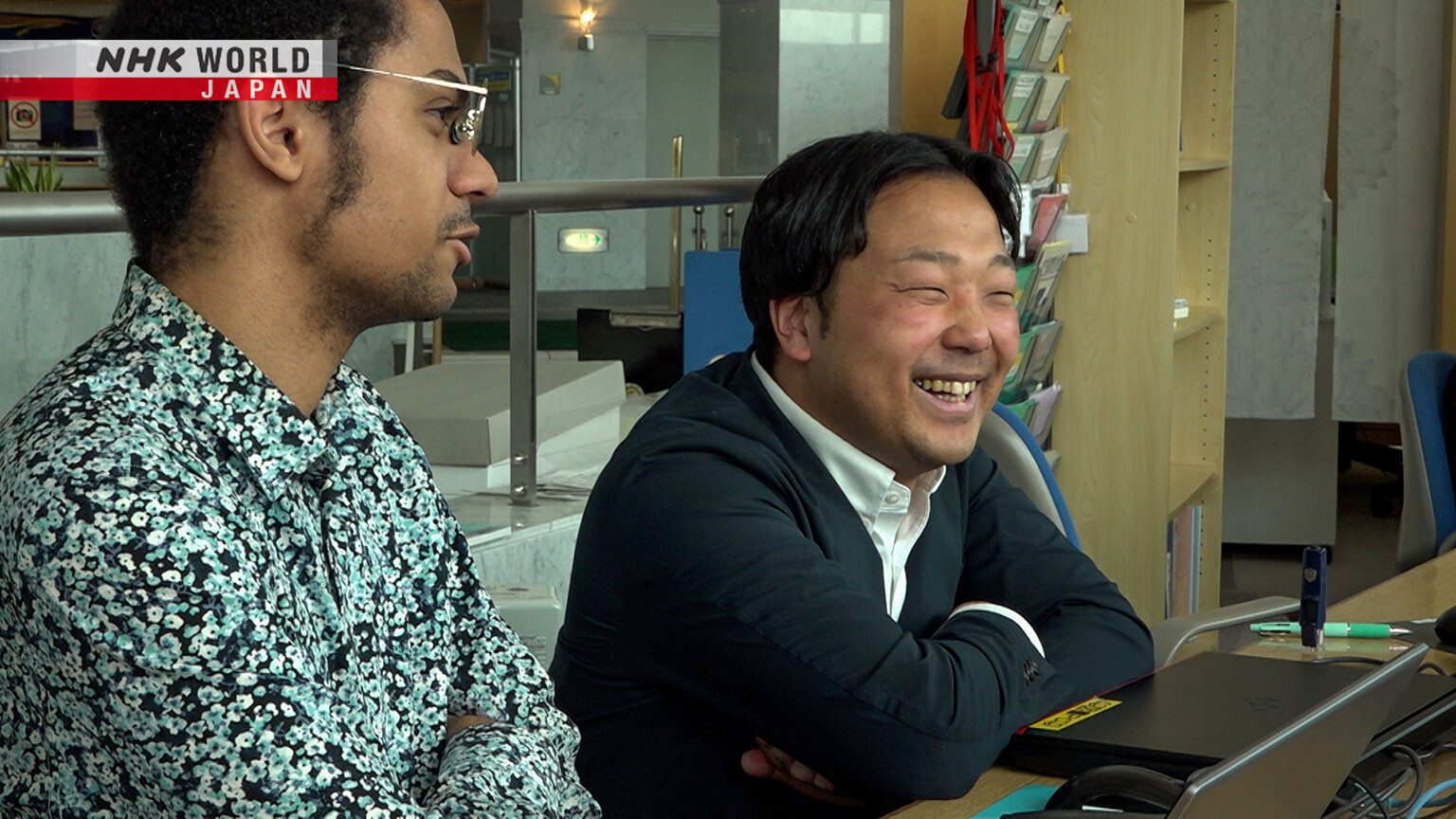Disasters and Foreign Residents
Panic, isolation, evacuation shelter life, community cooperation, network support... Foreign workers living in the Noto Peninsula area describe their experience of the major January 2024 earthquake.



Transcript
The Noto Peninsula Earthquake struck on January 1st, 2024.
It had a magnitude of 7.6 on the Richter scale.
And a tsunami warning was soon issued.
Where should we run to?
To the school?
Let's just get away!
Technical trainees from Asia tried to escape the tsunami by going to a higher place.
They were encountering a major earthquake in a country with a different language and lifestyle.
What troubles did they face at the moment the earthquake struck and in its aftermath?
What lessons did they learn for facing future disasters?
The city of Wajima was badly damaged.
Even three months after the quake, 1,476 people had no option but to continue living in shelters.
Among them was a woman from Vietnam.
I was cooking dinner when the lights flickered and the house shook violently.
She is Nguyen Thi Ngoc My.
When the earthquake struck, she desperately rushed out of the house.
A man, maybe in his fifties, shouted:
"A tsunami's coming! Get in the car!"
He was a stranger, but I did as I was told.
They arrived at a community center located on high ground.
It was only later that she learned that the man who had given her a ride was actually a neighbor.
My came to Japan a year ago as a technical trainee at a fish sauce factory.
She had spent most of her time just going back and forth between work and home,
and her Japanese was limited to greetings.
I was very scared. I knew nobody and couldn't communicate.
I couldn't do anything.
She could no longer live in her damaged house and the factory where she worked was closed.
My was the only foreigner at the shelter she stayed in.
About 200 people were there.
With water, electricity, and other essential services shut down,
they had to help each other, relying on limited relief supplies.
You can't just sit around all the time.
I tried to get involved in the work at the shelter.
But I couldn't understand words well.
We cleaned the bag after two pee uses and immediately after a poop.
But I couldn't tell whether people said 'pee' or 'poop' in Japanese.
I'm afraid I may have wasted resources.
Someone was concerned about My's situation.
Makara Ken is a Vietnamese who has lived in Japan for 25 years.
He heard about My's plight and contacted her directly on SNS.
It must be tough for her. I'm sure she's feeling lonely and uneasy.
Makara himself couldn't speak Japanese at all when he came to Japan.
He experienced an environment where there were no other Vietnamese around.
A workplace with limited terminology may not improve your language ability.
I didn't have many Japanese friends and there were few Vietnamese around,
so I had to work on my own.
Makara, who knows how it feels to have no one nearby to rely on, has supported My from a distance
by talking to her on the phone to give advice and sending her Vietnamese foodstuffs.
Foreigners tend to be isolated once a disaster occurs.
The Fukui International Association is an organization that is actively addressing this issue.
It's quite difficult to get information to foreigners.
It's not enough just to translate it into multiple languages.
It's of no use if it's not understood.
The Association has always thought it's a problem
that it's not easy for necessary information to reach foreign residents in everyday life, not just in times of disaster.
So it created the "Fukui International Community Leaders" to tackle the problem.
The local government works with foreigners living in the prefecture and encourages them to become leaders
to disseminate important information via the networks of their native language communities.
This initiative displayed its strength in the Noto Earthquake.
We connected via a LINE video call shortly after the earthquake.
8 or 9 community leaders joined us.
We heard how they were affected and checked if they were okay or not.
We could do it thanks to our mutual trust.
Another activity that the association focuses on is disaster drills conducted jointly by Japanese and foreign residents.
Actions from the moment a quake strikes to evacuation are taught with interpreters.
Another important purpose of the joint drills is for Japanese and foreigners in the community to get to know each other.
It's often referred to as "blind training."
It's like the chaos that occurs when Indonesian residents suddenly turn up.
Japanese and foreigner residents working together has meaning.
Associating with neighbors you rarely see on a daily basis...
the drills provide a precious opportunity.
Three months after the a joint drill, the Noto Earthquake occurred.
Sakai City was hit by a quake with an intensity of 5 upper on the Japanese seismic scale.
The Indonesians who had participated in the drill recall how they felt at the time of the actual earthquake.
I was trying to open the door to get out.
But it was hard to use the key, as I was panicking.
It rattled and shook like this.
Hardika had never experienced a large quake before.
Driven into a panic, he gathered his friends living in the neighborhood and headed to a safe place.
We had disaster drills here.
It was this elementary school on high ground.
During the disaster drills held there they had learned it would be an evacuation center in the event of a disaster.
The Japanese from the fishermen's union where they worked encouraged them to participate in the disaster drills.
The fishermen's union fully cooperated by arranging time off
and providing a car to take them to and from the training to ensure their participation.
The union president saw them evacuating voluntarily at the time of the earthquake.
I had driven up to a shrine on the hills for the New Year's visit.
I heard the tsunami warning when I came down.
I had just passed Hardika and the others heading up to the elementary school.
That proved the training works.
I was impressed to see them taking the right action.
The disaster drills had come to life in an actual disaster.
Behind this was the daily communication between Japanese and foreign residents.
My from Vietnam has been staying alone in the shelter.
Her life there has continued for over three months.
I hope there won't be any more natural disasters.
But if they do happen,
I think foreigners should never hesitate to talk to people.
Since you're living in Japan, you should communicate with the Japanese.
If you make mistakes, they will teach you.
You can also get better acquainted.
The evacuees I was with for a few months said, "My, let's live together here!"
I'm finally back at work and life's becoming easier.
I guess I'll be fine staying here.